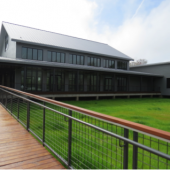“The Community Food Forest Handbook: How to Plan, Organize, and Nurture Edible Gathering Places” by Catherine Bukowski and John Munsell is a rare edition to the literatures of permaculture and agroecology: it foregrounds sociocultural dimensions in the context of ecological design.
Continue ReadingAbstract: Energy literacy, defined by the DOE, “is an understanding of nature and role of energy in the universe and in our lives” and, “…is also the ability to apply this understanding to answer questions and solve problems” (U.S. Department of Energy, 2013). Energy literacy is continuously evolving with the development of new feedstocks, technologies, and processes – all of which contribute to the changing landscape of energy production and use. In order for energy education to evolve with the energy field, better tools are needed to assess educational programs. The assessment discussed here is a step towards developing such an assessment for bioenergy.
Continue Reading
An Urban Nature Center: Take 2. My Journey to Sustainability Education in Rebuilding a Nature Center
Continue ReadingAbstract: The research coordination network (RCN) – Climate, Energy, Environment and Engagement in Semiarid Regions (CE3SAR) is a NSF funded five-year project (2012 to 2016, extend to 2017). One goal of the RCN CE3SAR project is to enhance sustainability education in South Texas. To achieve this goal, the RCN CE3SAR steering committee adopted two strategies: creating learning objects and supporting open education. This article reports the process and methods of creating and publishing RCN CE3SAR sustainability learning objects as open education resources.
Continue Reading